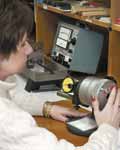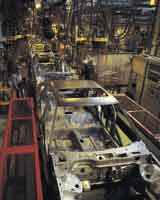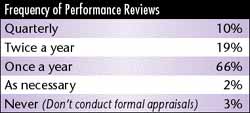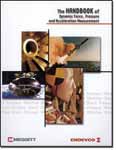 ISO 9001 Registration Helps Improve Airport Security
ISO 9001 Registration Helps Improve Airport Security
A branch of the U.S. Department of Transportation has achieved conformance to the ISO 9001:2000
quality standard for its process of certifying explosives detection systems found at airports. The Transportation Security Research, Engineering and Development Division (AAR-500), part of the
Transportation Security Administration, achieved the registration through Quality Management Institute. Explosive detection systems are used in airports and other transportation
centers to screen baggage for explosive devices. According to John Tye, quality manager at the division's business office, AAR-500 sought ISO 9001
registration in order to gain international recognition. "We wanted to have a good quality standard to benchmark our processes
and--at the same time--enforce that quality standard on the manufacturers of our equipment." Tye notes that the registration takes on new significance in light of the Sept. 11 tragedy.
AAR-500, located at the William J. Hughes Technical Center at Atlantic City International Airport, was formerly the Aviation Security Research and
Development Laboratory of the Federal Aviation Administration. Following Sept. 11, AAR-500 became a division of the newly established Transportation
Security Administration. This is the first ISO 9001 registration certificate issued to an organization within the TSA.
TSA's mission is to protect the nation's overall transportation systems and assist in preventing future terrorist attacks on U.S. citizens and interests. The
laboratory is involved in the development of a new and fully integrated transportation security system. It develops, tests and certifies explosives and
weapons detection technologies; has a program to evaluate and improve the human factors portion of the security equation; and is involved in the
development of transportation methods designed to withstand or survive attacks. The laboratory's internal ISO 9001 team, combined with support from JIL
Information Systems of Virginia, developed a new quality management system by defining core elements and then designing, documenting and implementing
the new system. Quality efforts will continue toward the goal of registering all of the lab's key functions to ISO 9001. Learn more about AAR-500 at www.its.tc.faa.gov/aar500 .
Metrology Shuffle: Brown & Sharpe Parent Acquires CEJohansson
Hexagon Metrology, a developer of coordinate measuring machines, software and precision measuring systems, has acquired CEJohansson, the metrology company of Newport Corp.
In April, Newport Corp. expressed plans to sell the majority of its Industrial Metrology Systems Division in two transactions with unrelated strategic buyers.  The contact measurement piece of its metrology business, primarily related to its CEJohansson
subsidiary in Sweden, went to Hexagon AB, based in Nacka Strand, Sweden. Hexagon is a multinational engineering company and parent of
metrology company Brown & Sharpe Inc., which is headquartered in North Kingstown, Rhode Island. The contact measurement piece of its metrology business, primarily related to its CEJohansson
subsidiary in Sweden, went to Hexagon AB, based in Nacka Strand, Sweden. Hexagon is a multinational engineering company and parent of
metrology company Brown & Sharpe Inc., which is headquartered in North Kingstown, Rhode Island. CEJohansson will join Brown & Sharpe as a member of Hexagon Metrology.
"Through the acquisition of CEJohansson, Hexagon Metrology will strengthen its leading position in Europe with a strong and well-organized brand," notes Ola Rollen, Hexagon's president and CEO.
Newport Chairman and CEO Robert G. Deuster says that a key growth strategy for the company has been to become a leading single-source supplier
of test, measurement and automation solutions to the fiber-optic communications and semiconductor equipment markets. "Divesting our
metrology business, which primarily serves end markets outside of our strategic focus, will allow us to more aggressively deploy Newport's resources to the
areas that hold the greatest growth potential for our company," explains Duester. Newport Corp. is currently in negotiations to sell its U.S.-based
noncontact metrology business to a separate strategic buyer. Brown & Sharpe's metrology operations were acquired by Hexagon in April
2001. The remaining business was renamed BNS Co. and includes the former Brown & Sharpe software development company Brown & Sharpe
Information Systems (renamed Xygent), in which Hexagon has also invested. The Rhode Island facility has become Hexagon's U.S. headquarters.
Hexagon plans to carry out acquisitions within its other two business units: Hexagon Automation and Hexagon Engineering. To learn more, visit Hexagon's Web site at www.hexagon.se. More Federal Agencies Using Private-Sector Standards
Since the National Technology Transfer and Advancement Act became law in 1996, federal agencies have been directed to adopt private-sector--or
"consensus"--standards whenever possible. The National Institute of Standards and Technology tracks various agencies' progress and has released a report reflecting the 2000 fiscal year.
The Fourth Annual Report on Federal Agency Use of Voluntary Consensus Standards concludes that federal agencies are greatly increasing their use of
private-sector standards in regulations and procurement actions. Twenty-eight agencies and cabinet-level departments used 5,453 consensus standards in new
or revised regulations and specifications issued during the 2000 fiscal year. This doubles the number reported during the previous fiscal year. These agencies
introduced only 16 government-specific standards, while eliminating 537. Exceptions to the law are permitted when available voluntary consensus
standards don't apply to particular mission-based requirements of an agency. It's required, however, that agencies report each time they use a unique standard.
Since the release of the first NIST report in 1997, the number of agencies reporting voluntary use of private-sector standards has increased tenfold.
Moreover, instances of agencies substituting consensus standards for government-specific standards has nearly tripled. In 2000, NIST reported an
82-percent drop in introductions of government-specific standards from the previous year. The number of federal employees participating in private-sector standards
bodies has declined from 3,726 in 1997 to 2,733 in 2000. However, the annual rate of decrease has slowed from 12 percent in 1999 to 4 percent in
2000. The report states that this is most likely due to staff attrition, budget cuts and streamlining of agency standards programs, and predicts the decline will level out during the next year.
The 142-page report sites specific examples of progress in the transition from government standards to private-sector standards:  The Environmental Protection Agency has increased its use of consensus
standards by 42 percent in the last fiscal year. The Environmental Protection Agency has increased its use of consensus
standards by 42 percent in the last fiscal year.
 The Department of Defense completed a review of all of its 40,000 military specifications for potential replacement by voluntary consensus standards. New
requirements are assessed to determine the appropriateness of private-sector standards.
The Department of Defense completed a review of all of its 40,000 military specifications for potential replacement by voluntary consensus standards. New
requirements are assessed to determine the appropriateness of private-sector standards.
 NASA and the Department of Defense launched the Single Process Initiative, which is intended to identify and apply common standards for
contractor-supplied equipment. NASA and the Department of Defense launched the Single Process Initiative, which is intended to identify and apply common standards for
contractor-supplied equipment.
 NIST has published its first conformity assessment guidelines to help agencies improve their management and coordination of testing, inspection,
certification and other activities to determine whether products or services meet regulatory or procurement requirements.
NIST has published its first conformity assessment guidelines to help agencies improve their management and coordination of testing, inspection,
certification and other activities to determine whether products or services meet regulatory or procurement requirements.
The full NIST report is available in online at ts.nist.gov/ts/htdocs/210/nttaa/toolkit.htm by clicking on "NTTAA Annual
Reports on Implementation." To order a hard copy, call (301) 975-4907.  Starrett Creates Calibration Subsidiary Starrett Creates Calibration Subsidiary
The L.S. Starrett Co. has created Starrett Calibration
Services. Located in Duncan, South Carolina, the new venture provides calibration and testing of all major brands of tools and gages, including gage blocks,
indicators, micrometers, electronic instruments, torque gages and pressure gages, among others. Calibration services for larger equipment is provided onsite.
Starrett Calibration Services also offers tool and gage repair for mechanical and electronic devices from major brands such as Starrett, Mitutoyo, Brown &
Sharpe, Mahr Federal, Standard Swiss Precision, Fowler and CDI. "Starrett has always repaired and calibrated its own products," says Tony
Aspin, vice president of sales. "Now we can provide assistance to customers who require service on equipment from other manufacturers, with the added convenience of shipping to one location."
The new division complements the services already available from the Starrett Granite Surface Plate Division in Mount Airy, North Carolina, the Starrett
Webber Gage Division in Cleveland and other divisions, which offer equipment, repairs and rebuilding of Starrett products. To learn more, visit Starrett's Web site at www.starrett.com.  Automotive Industry Gears Up for ISO/TS 16949:2002 Automotive Industry Gears Up for ISO/TS 16949:2002
The International Organization for Standardization
has released a new version of ISO/TS 16949. The new document is the result of an agreement between ISO and the International Automotive Task Force, aimed at meeting the quality
management system needs of the international automotive sector. ISO/TS 16949:2002 was developed through a partnership between the
International Automotive Task Force and the Japan Automobile Manufacturers Association, with support from ISO/TC 176, the ISO technical committee
responsible for the ISO 9000 family of quality management standards. "This technical specification is a value-adding document for the automotive
supply chain," comments Henry Gryn, IATF leader. "This technical specification, when coupled with its accompanying registration scheme, has
significant benefits for the suppliers to whom it is applicable and for subscribing OEM." ISO/TS 16949 focuses on the development of a quality management system
based on continual improvement, defect prevention and reducing variation and waste in the supply chain. Additionally, it includes sector-specific requirements
for employee competence, awareness and training; design and development; production and service provision; control of monitoring and measuring devices; and measurement, analysis and improvement.
ISO/TS 16949:2002, Quality management systems--Particular requirements for the application of ISO 9001:2000 for automotive production and relevant
service part organizations, costs about $70 and is available from ISO national member institutes and from the ISO Central Secretariat at sales@iso.org .
ISO plans to print a French language version of the standard. Learn more at www.iso.org. Assess Work Informally Between Performance Reviews The key to any good relationship is communication, as any therapist will tell
you. This maxim also applies to the employer-employee relationship: Just as employers want the job done right, employees need to know if--or how--they can improve.
"Don't wait until the formal review to recognize excellent work or raise concerns about weak performance," suggests Liz Hughes, executive director of
OfficeTeam, a staffing service specializing in administrative professionals. "Instead, address these situations when they arise and use a performance
review to discuss an employee's overall progress."  A recent survey developed by
OfficeTeam reports that 66 percent of managers schedule formal staff appraisals once a year, whereas 29 percent hold such meetings more frequently. The study, conducted by an
independent research firm, includes responses from 150 executives from 1,000 of the nation's largest companies. They were asked the question, "How often, if
ever, do you conduct formal performance appraisals of your staff?" Here are the results: A recent survey developed by
OfficeTeam reports that 66 percent of managers schedule formal staff appraisals once a year, whereas 29 percent hold such meetings more frequently. The study, conducted by an
independent research firm, includes responses from 150 executives from 1,000 of the nation's largest companies. They were asked the question, "How often, if
ever, do you conduct formal performance appraisals of your staff?" Here are the results:
"Annual performance appraisals are common among companies that tie formal
reviews to yearly raises and bonuses," comments Hughes. "But it's important for managers to provide ongoing feedback to foster greater productivity and reduce the potential for miscommunication."
Hughes also offers the following tips for an effective performance review meeting:  Decide on a standard review schedule and adhere to it. Consider holding more frequent meetings for new or less experienced employees. Decide on a standard review schedule and adhere to it. Consider holding more frequent meetings for new or less experienced employees.
 Consult the experts. Your legal and human resources departments may have
guidelines and materials to help plan the review. Ask if there are policies for discussing compensation, documenting the meetings and for following up. Consult the experts. Your legal and human resources departments may have
guidelines and materials to help plan the review. Ask if there are policies for discussing compensation, documenting the meetings and for following up.
 Be fair and consistent. Meet with each staff member privately for the review,
ideally in a place where you can focus without interruption. Evaluate all employees according to the same criteria. Be fair and consistent. Meet with each staff member privately for the review,
ideally in a place where you can focus without interruption. Evaluate all employees according to the same criteria.
 Ask the employee to prepare a list of accomplishments, obstacles and goals.
Review the document prior to the meeting and use it as the basis for discussion. Ask the employee to prepare a list of accomplishments, obstacles and goals.
Review the document prior to the meeting and use it as the basis for discussion.
 Set objectives with each staff member, even excellent employees, and plan a course for improvement and progress checks prior to the next formal review. Set objectives with each staff member, even excellent employees, and plan a course for improvement and progress checks prior to the next formal review.

SME Earns
Shingo Prize for
Research and
Publications The Society of Manufacturing Engineers has received the Shingo
Prize for Research and Professional Publications for three bodies of work: Lean Manufacturing for the Small Shop, a book by Gary Conner published in 2001; Manufacturing Insights, a
video series; and "Evaluation of the Plant Design of Two Automotive Suppliers Using the Manufacturing System Design and Decomposition," a technical journal article.
"It's an honor to receive the Shingo Prize for the technical information that SME produces," says Edward McCallum, director of integrated business
services. "Our publications are produced, edited and peer-reviewed by SME members who are leading experts in their field." Established in 1988, the Shingo Prize promotes awareness of lean
manufacturing and recognizes companies that achieve world-class manufacturing status. It has been hailed as the Nobel Prize for manufacturing by Business Week.
Connor's Lean Manufacturing for the Small Shop provides descriptions of lean manufacturing techniques, real-world examples and implementation instructions.
Connor is a 20-year veteran of lean manufacturing practices. The SME video series introduces the latest manufacturing systems and
processes, including agile manufacturing metalworking; automation and robotics plant operations; CAD/CAM/CIM plastics and composites; continuous
improvement product design; industrial engineering quality; ISO 14000 rapid prototyping; and lean manufacturing sensors and machine vision. The series includes shop-floor footage and case studies.
The journal article, by David S. Cochran, Joachim Linck and Patrick Niese, was published in NAMRI/SME. It evaluates the design of manufacturing
systems at two North American automotive manufacturing plants using the  Manufacturing System Design Decomposition
measurables. Manufacturing System Design Decomposition
measurables. SME is a professional society supporting manufacturing education. Learn more at www.sme.org. Industry  Zontec and Intuitive Sign OEM Agreement Zontec and Intuitive Sign OEM Agreement
Zontec Inc. and Intuitive Manufacturing Systems Inc. have
entered into an original equipment manufacturer agreement under which Intuitive will bundle Zontec's Synergy 2000 statistical process control software
with Intuitive's enterprise resources planning solutions.
Intuitive will offer Zontec technology to manufacturers as an optional software
module called Intuitive SPC. Zontec offers SPC software to monitor, control, evaluate and analyze processes for various companies. For more information,
visit www.zontec.com. Intuitive's Web site is located at www.intuitivemanufacturing.com .  AQA International Purchases American Quality Assessors AQA International Purchases American Quality Assessors
AQA International LLC has purchased all assets of American Quality Assessors Inc. (AQA). As part of the asset purchase, AQA International bought the rights to use the name
American Quality Assessors and the AQA mark. AQA International has assumed the business of American Quality Assessors. In addition, AQA
International has been assigned ANSI-RAB, RvA and IATF accreditation held by AQA.
"This transaction is paramount to the future of our business, and it will benefit
AQA's employees, customers and service providers globally," says Charles Howell, president of AQA International. For more information, visit www.aqausa.com .
 New Testing Capabilities at Integrity
New Testing Capabilities at Integrity
Integrity Design and Test Services, an Entela Inc. company, has purchased single-axis vibration equipment and environmental chambers for
programmable temperature cycling and humidity exposure. Integrity now offers vibration, thermal aging, thermal cycling, programmable chamber exposures, temperature and humidity tests.
Integrity Design and Test Services provides conformity assessment services to various standards, including emissions, immunity, performance testing, product
certification, CE marking and IECEE CB certificates. For more information, visit www.entela.com .  Endevco Releases Handbook for Endevco Releases Handbook for
Dynamic Force, Pressure and Acceleration
Endevco Corp. has released "The Handbook of Dynamic Force, Pressure and Acceleration Measurement," designed for companies dependent on
measurement systems for test control applications.
Written by professional engineer Pat Walter, the book gives detailed explanations of various measurement
considerations and includes a measurement planning checklist. The price is $45. To purchase a copy, contact Endevco at communications@endevco.com .
Parts one through 10 are posted on the Endevco Web site at www.endevco.com/test/literature_tutorials.htm. |